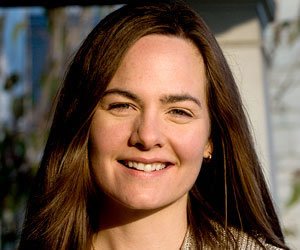
The Medical School Interview: They Aren’t All The Same!
“What kind of interview will it be?” This is not a question applicants ever asked ... Read more
Written by: Jessica Freedman
Published on: November 13, 2015

“What kind of interview will it be?” This is not a question applicants ever asked ... Read more
Written by: Jessica Freedman
Published on: November 13, 2015

Letters of evaluation are a vital component of the medical school application process. Since many ... Read more
Written by: Anubodh “Sunny” Varshney
Published on: November 11, 2015

Dr. Christine Montross is Assistant Professor of Psychiatry and Human Behavior and the Director of ... Read more
Written by: Christy Duan
Published on: November 9, 2015

By Michelle Finkel, MD with CrispyDoc You put your heart and soul into your compelling, ... Read more
Written by: Michelle Finkel
Published on: November 6, 2015

With the Medical College Admissions Test (MCAT) undergoing major changes in 2015, the first revamp ... Read more
Written by: EduMind
Published on: October 30, 2015

$176,000. It’s a number newly-minted physicians or those in the process of becoming a doctor ... Read more
Written by: Student Loan Hero
Published on: October 21, 2015

I was about to burst with excitement the minute I started medical school. I’m pretty ... Read more
Written by: Adelle
Published on: October 19, 2015

The USMLE Step 1 exam is arguably one of the most important tests in a ... Read more
Written by: Anubodh “Sunny” Varshney
Published on: October 14, 2015

Professional school is hectic. Very hectic. Most programs require the dedication that is equivalent to ... Read more
Written by: David Nguyen
Published on: October 12, 2015

Why attend a pre-med recruitment fair? Pre-med recruitment fairs are great opportunities to learn about ... Read more
Written by: AAMC Staff
Published on: October 7, 2015

Download the 2023 Edition of the Nymeria 100-day MCAT study plan – rebuilt with all ... Read more
Written by: Nymeria
Published on: October 6, 2015

Reposted from here with permission It is one thing to be a doctor and another to ... Read more
Written by: Vivienne Meljen
Published on: September 23, 2015

Walking into my first day of medical school was a little like walking into my ... Read more
Written by: Adelle
Published on: September 21, 2015

Many students arrive at medical school with a bias that their liberal arts education has ... Read more
Written by: Michelle Finkel
Published on: September 16, 2015

Once you have been selected for an interview at a medical school, you will have ... Read more
Written by: Anubodh “Sunny” Varshney
Published on: September 9, 2015

Most people wouldn’t normally think of medical school as a risky investment. Sure, there are ... Read more
Written by: AJ Nguyen
Published on: September 4, 2015

The interview is one of the most important steps in the medical school application process. ... Read more
Written by: AAMC Staff
Published on: September 2, 2015

As third year medical students you’re rotating through your general specialties and you think you’re ... Read more
Written by: Eric Chow and Christopher Terry
Published on: August 31, 2015

It is that time of year again. Medical school students across the country are preparing applications ... Read more
Written by: Jeff Steiner
Published on: August 21, 2015